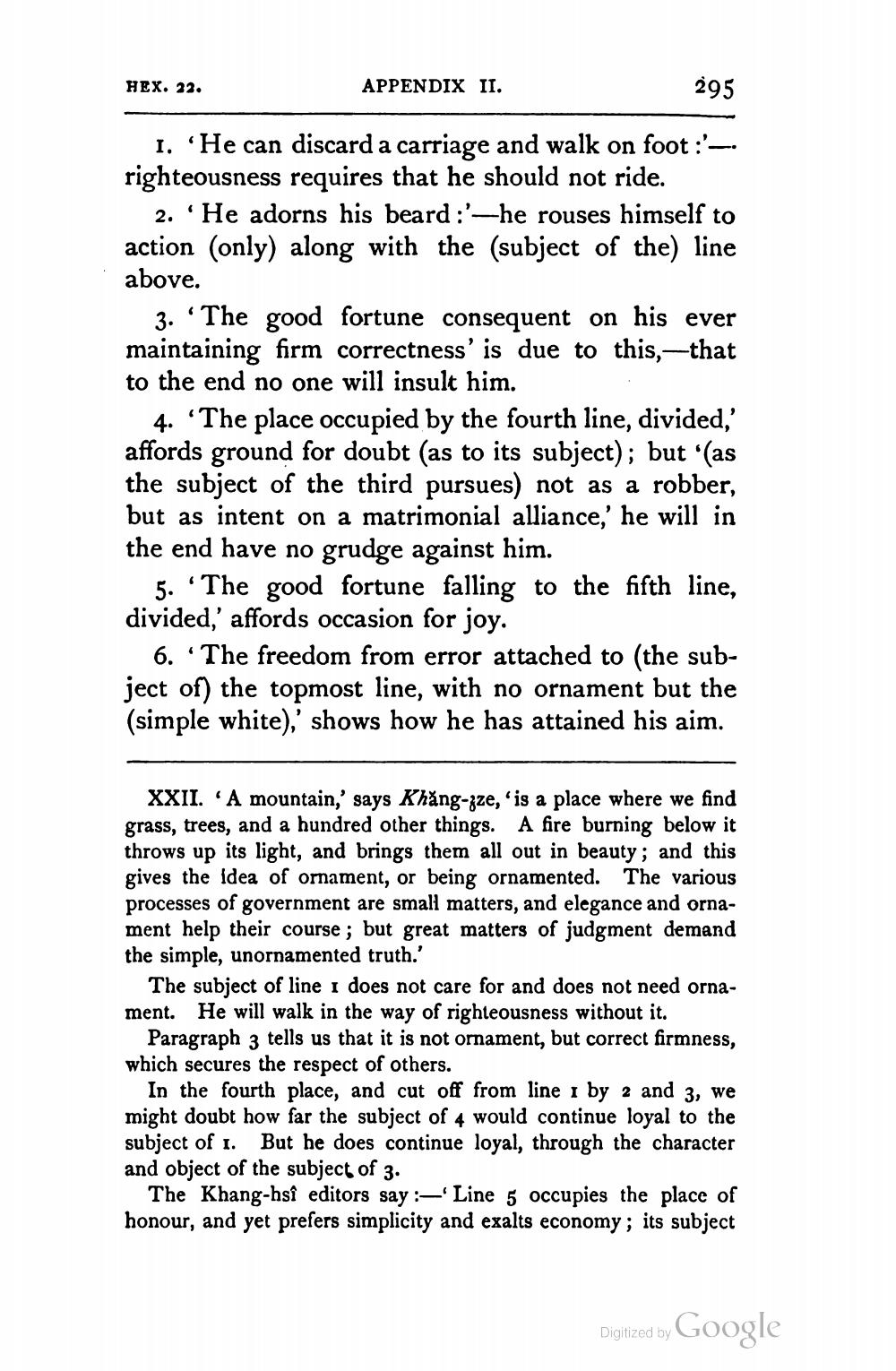________________
HEX. 22.
APPENDIX II.
295
1. He can discard a carriage and walk on foot :'-. righteousness requires that he should not ride.
2. He adorns his beard :-he rouses himself to action (only) along with the (subject of the) line above.
3. 'The good fortune consequent on his ever maintaining firm correctness' is due to this, that to the end no one will insult him.
4. “The place occupied by the fourth line, divided,' affords ground for doubt (as to its subject); but '(as the subject of the third pursues) not as a robber, but as intent on a matrimonial alliance,' he will in the end have no grudge against him.
5. “The good fortune falling to the fifth line, divided,' affords occasion for joy.
6. 'The freedom from error attached to the subject of) the topmost line, with no ornament but the (simple white),' shows how he has attained his aim.
XXII. 'A mountain,' says Khăng-zze, 'is a place where we find grass, trees, and a hundred other things. A fire burning below it throws up its light, and brings them all out in beauty; and this gives the idea of ornament, or being ornamented. The various processes of government are small matters, and elegance and ornament help their course ; but great matters of judgment demand the simple, unornamented truth.'
The subject of line i does not care for and does not need ornament. He will walk in the way of righteousness without it.
Paragraph 3 tells us that it is not ornament, but correct firmness, which secures the respect of others.
In the fourth place, and cut off from line 1 by 2 and 3, we might doubt how far the subject of 4 would continue loyal to the subject of 1. But he does continue loyal, through the character and object of the subject of 3.
The Khang-hsî editors say :-Line 5 occupies the place of honour, and yet prefers simplicity and exalts economy; its subject
Digitized by Google




